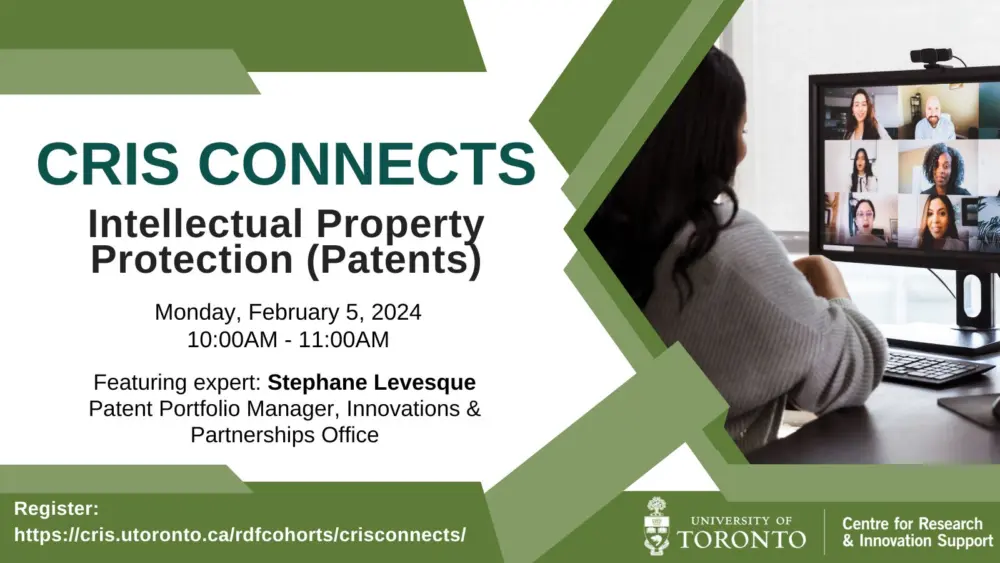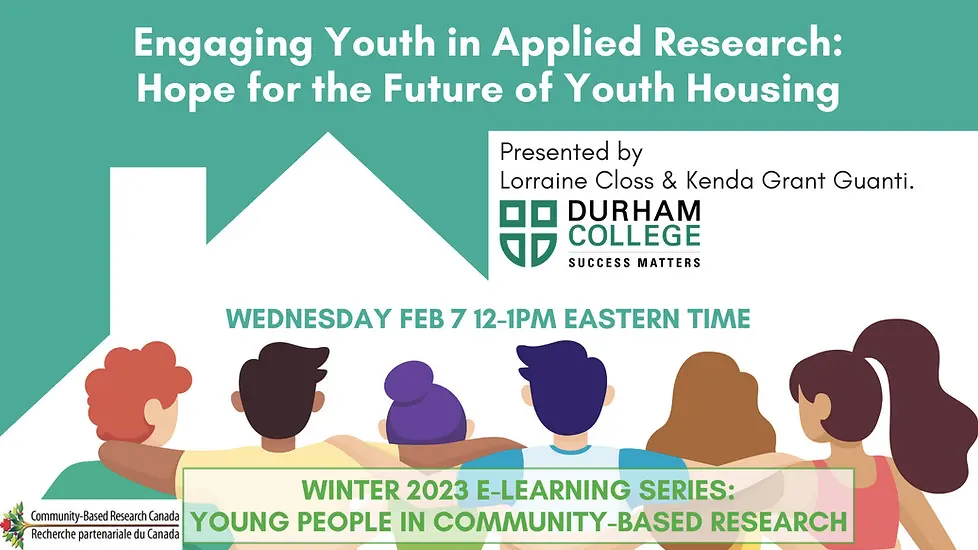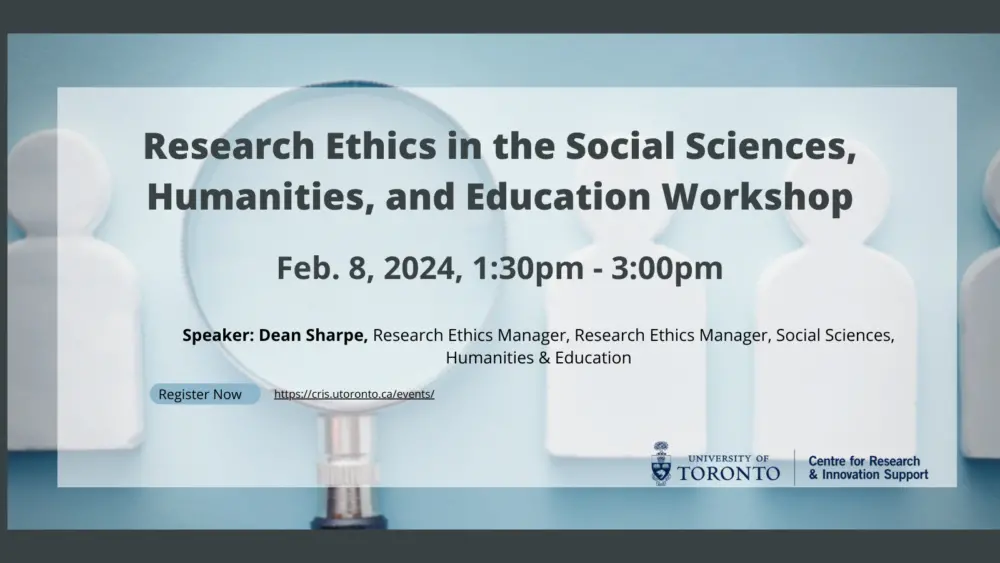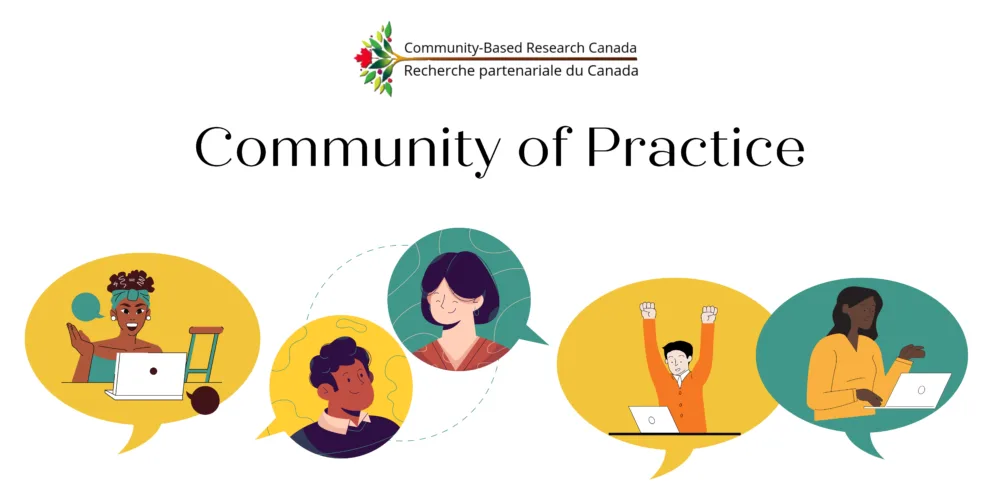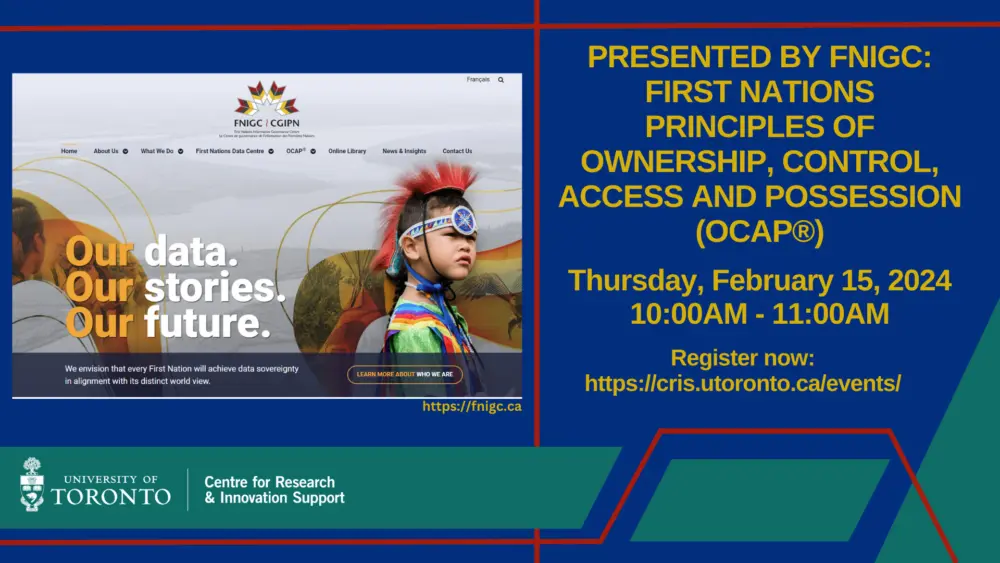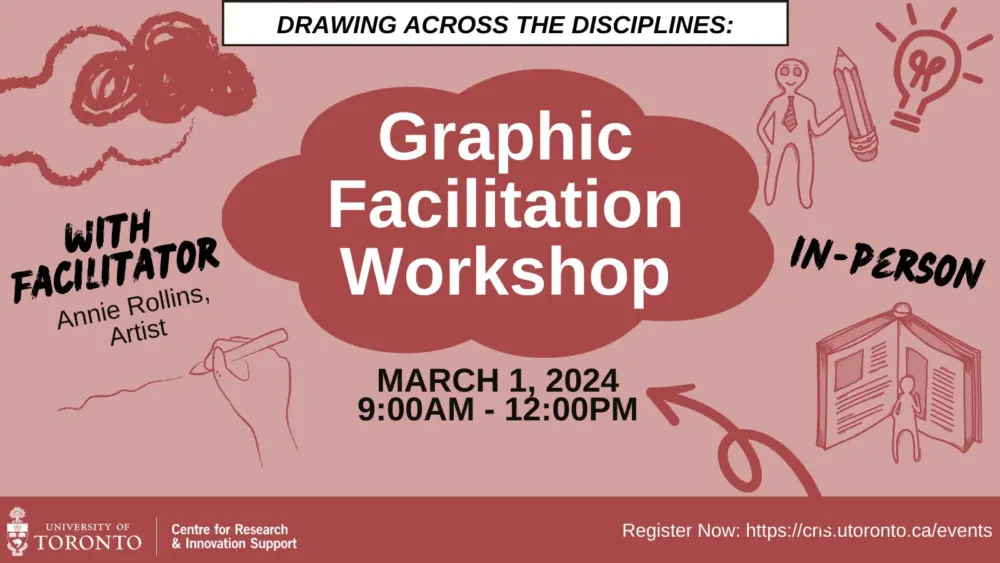In this course data analysis techniques utilizing the Python and R languages will be introduced, as well as the basics of programming and scientific computing. The goal of this course is to prepare graduate students for performing scientific data analysis. Successful students will learn how to use statistical inference tools to gain insight into large […]
Calendar of Events
|
S
Sun
|
M
Mon
|
T
Tue
|
W
Wed
|
T
Thu
|
F
Fri
|
S
Sat
|
|---|---|---|---|---|---|---|
|
0 events,
|
0 events,
|
5 events,
-
-
This course is aimed at reducing your struggle in getting started with computational projects, and make you a more efficient computational scientist. Topics include well-established best practices for developing software as it applies to scientific computations, common numerical techniques and packages, and aspects of high performance computing. While we will introduce the C++ language, in […]
-
NSERC is pleased to announce the launch of several improvements to its Alliance grants program. This update is in response to feedback received and builds on our experience with the program over the last four years. Alliance grants were launched in 2019 to encourage university researchers to collaborate with partner organizations from the private, public […]
-
Uncovering Trends and Strategies for IP Protection Join a panel of IP lawyers, entrepreneurs, and representatives from the U of T Innovations & Partnerships Office (IPO) for a wide-ranging discussion about AI’s transformative impact in revolutionizing the landscape of chemical research and development. We will discuss the pivotal role tech transfer offices play in commercializing […]
-
The Politics of the Rule of Law SSHRC, in partnership with The Conversation Canada, is pleased to present In Conversation With, a series of public talks featuring the most recent winners of SSHRC’s Impact Awards. The series brings engaging and enlightening dialogue with SSHRC-funded researchers to Canadians from coast to coast to coast, highlighting the […] |
2 events,
-
NSERC is pleased to announce the launch of several improvements to its Alliance grants program. This update is in response to feedback received and builds on our experience with the program over the last four years. Alliance grants were launched in 2019 to encourage university researchers to collaborate with partner organizations from the private, public […]
-
Researchers and faculty doing DH work will inevitably need to display their research findings or create a portfolio of work. Our goal is to equip researchers with the knowledge and digital tools to set up these sites. We will do this through an introductory workshop to teach attendees fundamentals of website creation, including choosing a […] |
2 events,
-
This course is aimed at reducing your struggle in getting started with computational projects, and make you a more efficient computational scientist. Topics include well-established best practices for developing software as it applies to scientific computations, common numerical techniques and packages, and aspects of high performance computing. While we will introduce the C++ language, in […]
-
In this course data analysis techniques utilizing the Python and R languages will be introduced, as well as the basics of programming and scientific computing. The goal of this course is to prepare graduate students for performing scientific data analysis. Successful students will learn how to use statistical inference tools to gain insight into large […] |
0 events,
|
0 events,
|
|
0 events,
|
2 events,
-
The CRIS Connects (https://cris.utoronto.ca/rdfcohorts/crisconnects/) series provides targeted, real-time help from guest experts. These drop-in sessions are designed for you to come and ask our guest experts anything on their topic of expertise. Join other UofT community members and learn together as you get your questions answered. Join us for the next session CRIS Connects: Intellectual […]
-
Are you ready to learn more about how artificial neural networks and machine learning techniques work? Join the Critical Digital Humanities Initiative (CDHI) to discover how these technologies can transform your teaching and research, opening new dimensions in higher education. In this introductory-level workshop, participants will learn the basics of how text-based and image-based Generative […] |
6 events,
-
Members of the U of T community, including graduate students, early career researchers (post docs, new faculty), established researchers, staff, librarians, who want to explore the research and publication process and tools that fit into their workflows are invited to attend Research Days at UTSC presented by Marisa Ruccolo (Clarivate Director, Customer Success) in partnership […]
-
In this course data analysis techniques utilizing the Python and R languages will be introduced, as well as the basics of programming and scientific computing. The goal of this course is to prepare graduate students for performing scientific data analysis. Successful students will learn how to use statistical inference tools to gain insight into large […]
-
Are you thinking of writing your second book? The second monograph writing endeavour is unique and while you’ve gained skills and insight into the scholarly publishing process from your first book, understanding the distinctions with the second book project will set you up for publishing success. Panelists will address the relationship between promotion to Professor […]
-
This course is aimed at reducing your struggle in getting started with computational projects, and make you a more efficient computational scientist. Topics include well-established best practices for developing software as it applies to scientific computations, common numerical techniques and packages, and aspects of high performance computing. While we will introduce the C++ language, in […]
-
The Human Research Ethics Unit is pleased to invite you to this informational session to address all types of research involving human participants in the health sciences. Faculty members, graduate students, and staff are invited to attend. Workshops will include a presentation with opportunities for questions and discussion. Topics will include: • History and principles behind research […]
-
What is a Research Day? Description: Day-long mini-conference or shorter workshop that covers topics central to both the early-career researcher and more established faculty. Audience: Invite undergraduate and graduate researchers, PhD candidates, junior and senior faculty, and anyone wanting to learn about the research and publication process and tools that fit into their workflow. Presented […] |
3 events,
-
Community-Based Research Canada presents “Young People in Community-Based Research”: our winter 2024 e-learning series. This series will highlight community-based research projects, models, and processes that exemplify participatory engagement of young people in research. An important hallmark of community-based research is that the research is participatory, meaning it involves authentic and meaningful participation of stakeholders in […]
-
Getting and using your free ORCID iD and ORCID record can help you save time and get credit for your work in funding, publishing, and research reporting workflows. Funding organizations, publishers, and research institutions are increasingly requiring or asking for ORCID iDs from researchers, so this workshop will help you make sure you are ahead […]
-
What is a Research Day? Description: Day-long mini-conference or shorter workshop that covers topics central to both the early-career researcher and more established faculty. Audience: Invite undergraduate and graduate researchers, PhD candidates, junior and senior faculty, and anyone wanting to learn about the research and publication process and tools that fit into their workflow. Presented […] |
4 events,
-
This course is aimed at reducing your struggle in getting started with computational projects, and make you a more efficient computational scientist. Topics include well-established best practices for developing software as it applies to scientific computations, common numerical techniques and packages, and aspects of high performance computing. While we will introduce the C++ language, in […]
-
In this course data analysis techniques utilizing the Python and R languages will be introduced, as well as the basics of programming and scientific computing. The goal of this course is to prepare graduate students for performing scientific data analysis. Successful students will learn how to use statistical inference tools to gain insight into large […]
-
Join the Anti-Racism and Cultural Diversity Office (ARCDO) and Hart House for a film screening and discussion centered on Black women in leadership navigating institutional spaces. Navigating the realities of anti-Black racism within varying intersectionalities calls for Black leaders to engage a level of hope, determination and strength within their professional journeys. Let us come […]
-
The Human Research Ethics Unit invites you to join this information session to address all types of research involving human participants in the Social Sciences, Humanities, and Education. Faculty members, graduate students, and staff are invited to attend. Workshops include a presentation with opportunities for questions and discussion. The research ethics workshops are eligible for credit in the School of Graduate Studies […] |
3 events,
-
You're invited to a virtual celebration to mark the International Day of Women and Girls in Science! Join a panel discussion featuring women leaders from top research institutes & learn about their inspiring journeys into science. Hear from: Janet Rossant, Chief of Research Emeritus, The Hospital for Sick Children Rulan Parekh, Vice President of Academics […]
-
U of T Info Session: Discussing the internal process the MRA Block Grant tool for the 2024 USRA competition, and the USRA Black Student Researcher Awards.This workshop is for department business officers and undergraduate coordinators.
-
Community of practice meetings actively bring together CBRCanada members from across Canada and beyond to engage in meaningful discussions. All involved in community-based research are welcome, whether you are a researcher, peer-researcher, student, project coordinator, administrator, director, or community leader. The purpose of the community of practice is to network with others, learn from each […] |
0 events,
|
|
0 events,
|
2 events,
-
Join us for the next Get it Started, Get it Finished, Keep it Going (https://cris.utoronto.ca/rdfcohorts/get-it-started/). These monthly sessions are geared to addressing the competing priorities faculty face during the semester from research, teaching, to service commitments. In these semi-structured (Two 45-minute timed work sessions), researchers will set goals that are specific, measurable, achievable, realistic, time-bound (SMART) […]
-
Canada is a leader in innovation, research and development, thanks to the research community’s commitment to open science and international collaboration. However, this strength also makes Canadian research an attractive target for malicious actors. The transfer of our cutting-edge research can result in: Damage to the integrity of Canadian academic and research institutions Advancements in […] |
10 events,
-
This session focuses on accessible content creation practices. Techniques for conceptualizing, creating and maintaining accessible documents will be discussed and how to build these into department wide processes. A heavy emphasis is placed on why those techniques are important, and the ramifications of formatting decisions. This event is hosted by Accessibility For Ontarians With Disabilities […]
-
In this course data analysis techniques utilizing the Python and R languages will be introduced, as well as the basics of programming and scientific computing. The goal of this course is to prepare graduate students for performing scientific data analysis. Successful students will learn how to use statistical inference tools to gain insight into large […]
-
This course is aimed at reducing your struggle in getting started with computational projects, and make you a more efficient computational scientist. Topics include well-established best practices for developing software as it applies to scientific computations, common numerical techniques and packages, and aspects of high performance computing. While we will introduce the C++ language, in […]
-
With the use of African wisdom and principles, the focus of this Black healing circle will be for participants to explore how they may begin to live more liberated now, whether in or outside the school institution. Black bodies are constantly in a state of survival, which leaves many feeling overly exhausted and stressed as […]
-
This session will serve as a walk-through demonstration of how to use the Data Management Plan (DMP) Assistant tool. A high-level overview of research data management and the role of DMPs will be provided, as well as concrete examples, resources, and best practices in the creation of a data management plan for humanities and social […]
-
Are you interested in sharing your data with other researchers? Has a journal or funder asked you to share your data? In this session, participants will learn how to organize and publish research data in U of T Dataverse, the university of Toronto's institutional data repository hosted by Borealis. Through a live demo, participants will […]
-
Canada is a leader in innovation, research and development, thanks to the research community’s commitment to open science and international collaboration. However, this strength also makes Canadian research an attractive target for malicious actors. The transfer of our cutting-edge research can result in: Damage to the integrity of Canadian academic and research institutions Advancements in […]
-
This event will focus on providing information about the NSERC CREATE program with a focus on the LOI and internal application and selection process. There will be past CREATE NSERC Review Committee members to share insights into the NSERC review process, as well as the Research Equity & Development Strategist from the Research Services Office […]
-
This session will provide an overview of three nationally-supported Research Data Management (RDM) Platforms and Services, the Federated Research Data Repository (FRDR); Borealis, the Canadian Dataverse Repository; and Lunaris, Canada’s national data discovery service. This session is hosted by the Digital Research Alliance of Canada as part of their Humanities and Social Sciences Winter Series […]
-
This session will provide an overview of three nationally-supported Research Data Management (RDM) Platforms and Services, the Federated Research Data Repository (FRDR); Borealis, the Canadian Dataverse Repository; and Lunaris, Canada’s national data discovery service. This session is hosted by the Digital Research Alliance of Canada as part of their Humanities and Social Sciences Winter Series […] |
7 events,
-
This session aims to give a foundation or refresher for website content editors on web accessibility fundamentals. Participants will learn about Web Content Accessibility Guidelines (WCAG 2.0) and how they apply to the AODA, what this means for their role at the University and provide a foundation for discussion of web accessibility with different types […]
-
Join us for the third session of the “Community Engaged Research Faculty Discussion Club (https://cris.utoronto.ca/related/community-engaged-research-faculty-discussion-club),” a new series for researchers with an interest in deepening their theoretical and practical understanding of community-engaged research to connect with, and learn together from, colleagues from across the tri-campus in order to strengthen both societal and scholarly impact. Faculty, […]
-
In about 90 minutes, learn how to use the SciNet systems Niagara and Mist, from securely logging in to running computations on the supercomputer. Experienced users may still pick up some valuable pointers.Format: Virtual
-
Canada is a leader in innovation, research and development, thanks to the research community’s commitment to open science and international collaboration. However, this strength also makes Canadian research an attractive target for malicious actors. The transfer of our cutting-edge research can result in: Damage to the integrity of Canadian academic and research institutions Advancements in […]
-
Want to learn to code and don’t know where to start? This workshop will provide hands on coding experience, explain core programming concepts, and lay out the steps to becoming an expert coder. The workshop will get rid of any nervousness you might have about learning to code. Please feel free to bring any questions […]
-
Canada is a leader in innovation, research and development, thanks to the research community’s commitment to open science and international collaboration. However, this strength also makes Canadian research an attractive target for malicious actors. The transfer of our cutting-edge research can result in: Damage to the integrity of Canadian academic and research institutions Advancements in […]
-
Want to learn to code and don’t know where to start? This workshop will provide hands on coding experience, explain core programming concepts, and lay out the steps to becoming an expert coder. The workshop will get rid of any nervousness you might have about learning to code. Please feel free to bring any questions […] |
12 events,
-
This session aims to give a foundation or refresher for website content editors on web accessibility fundamentals. Participants will learn about Web Content Accessibility Guidelines (WCAG 2.0) and how they apply to the AODA, what this means for their role at the University and provide a foundation for discussion of web accessibility with different types […]
-
The First Nations Principles of Ownership, Control, Access, and Possession – more commonly known as OCAP® – assert that First Nations have control over data collection processes, and that they own and control how this information can be used. This presentation, led by Leslie Macgregor, introduces participants to First Nations Indigenous Governance Centre (FNIGC), the […]
-
This course is aimed at reducing your struggle in getting started with computational projects, and make you a more efficient computational scientist. Topics include well-established best practices for developing software as it applies to scientific computations, common numerical techniques and packages, and aspects of high performance computing. While we will introduce the C++ language, in […]
-
In this course data analysis techniques utilizing the Python and R languages will be introduced, as well as the basics of programming and scientific computing. The goal of this course is to prepare graduate students for performing scientific data analysis. Successful students will learn how to use statistical inference tools to gain insight into large […]
-
Using a single environment for all stages of your research project can help you organize your work. To this end, our team recommends JupyterLab, a software that logs code, text, equations, graphs and visualizations in a single document. This tool can also execute the lines of a program one at a time and thus allow […]
-
The Edwin S.H. Leong Centre for Healthy Children is hosting its next Community Engagement Series event titled “Resonance of Resistance: Fostering Culturally Responsive Approaches to Homicide Research for Black Communities” on February 15th at 12-1pm (ET). Join Dr. Tanya Sharpe, Associate Professor; Endowed Chair in Social Work in the Global Community, and the founder and […]
-
Using a single environment for all stages of your research project can help you organize your work. To this end, our team recommends JupyterLab, a software that logs code, text, equations, graphs and visualizations in a single document. This tool can also execute the lines of a program one at a time and thus allow […]
-
The Edwin S.H. Leong Centre for Healthy Children is hosting its next Community Engagement Series event titled “Resonance of Resistance: Fostering Culturally Responsive Approaches to Homicide Research for Black Communities” on February 15th at 12-1pm (ET). Join Dr. Tanya Sharpe, Associate Professor; Endowed Chair in Social Work in the Global Community, and the founder and […]
-
Canada is a leader in innovation, research and development, thanks to the research community’s commitment to open science and international collaboration. However, this strength also makes Canadian research an attractive target for malicious actors. The transfer of our cutting-edge research can result in: Damage to the integrity of Canadian academic and research institutions Advancements in […]
-
Canada is a leader in innovation, research and development, thanks to the research community’s commitment to open science and international collaboration. However, this strength also makes Canadian research an attractive target for malicious actors. The transfer of our cutting-edge research can result in: Damage to the integrity of Canadian academic and research institutions Advancements in […]
-
This Feb. 15, join the Ontario Institute for Studies in Education (OISE) community and OISE Black faculty for a special conversation that honours the achievements of Black women in academia and acknowledges their leadership and impact. This annual Black History Month event will explore what it means to be Black and a woman in higher […]
-
This Feb. 15, join the Ontario Institute for Studies in Education (OISE) community and OISE Black faculty for a special conversation that honours the achievements of Black women in academia and acknowledges their leadership and impact. This annual Black History Month event will explore what it means to be Black and a woman in higher […] |
2 events,
-
How does deep learning really work? What exactly are those large language models everybody talks about? How can I build a neural network? What is NLP? This presentation will answer these questions in a non-technical manner to give you a high-level understanding of a discipline that has become crucial in all fields of research. This […]
-
How does deep learning really work? What exactly are those large language models everybody talks about? How can I build a neural network? What is NLP? This presentation will answer these questions in a non-technical manner to give you a high-level understanding of a discipline that has become crucial in all fields of research. This […] |
0 events,
|
|
0 events,
|
2 events,
-
Canada is a leader in innovation, research and development, thanks to the research community’s commitment to open science and international collaboration. However, this strength also makes Canadian research an attractive target for malicious actors. The transfer of our cutting-edge research can result in: Damage to the integrity of Canadian academic and research institutions Advancements in […]
-
Canada is a leader in innovation, research and development, thanks to the research community’s commitment to open science and international collaboration. However, this strength also makes Canadian research an attractive target for malicious actors. The transfer of our cutting-edge research can result in: Damage to the integrity of Canadian academic and research institutions Advancements in […] |
6 events,
-
Humanities researchers, are you ready to publish but need some guidance on placing your article? Publication in top-tier journals is one of the most effective means to demonstrate research excellence and this record is often used to assess academic CVs and tenure dossiers. This JHI workshop is designed to assist all early career researchers to […]
-
Humanities researchers, are you ready to publish but need some guidance on placing your article? Publication in top-tier journals is one of the most effective means to demonstrate research excellence and this record is often used to assess academic CVs and tenure dossiers. This JHI workshop is designed to assist all early career researchers to […]
-
Canada is a leader in innovation, research and development, thanks to the research community’s commitment to open science and international collaboration. However, this strength also makes Canadian research an attractive target for malicious actors. The transfer of our cutting-edge research can result in: Damage to the integrity of Canadian academic and research institutions Advancements in […]
-
Canada is a leader in innovation, research and development, thanks to the research community’s commitment to open science and international collaboration. However, this strength also makes Canadian research an attractive target for malicious actors. The transfer of our cutting-edge research can result in: Damage to the integrity of Canadian academic and research institutions Advancements in […]
-
Research Connect in collaboration with Canadian Burn Association is delighted to offer “Burn Focus webinar series”. These series of webinars are mainly clinical in nature and we trust that many of our research teams will find them to be thought-provoking and resulting in collaborative research ideas. They are thrilled to have Dr. Naiem Moiemen, Dr. […]
-
Research Connect in collaboration with Canadian Burn Association is delighted to offer “Burn Focus webinar series”. These series of webinars are mainly clinical in nature and we trust that many of our research teams will find them to be thought-provoking and resulting in collaborative research ideas. They are thrilled to have Dr. Naiem Moiemen, Dr. […] |
4 events,
-
Canada is a leader in innovation, research and development, thanks to the research community’s commitment to open science and international collaboration. However, this strength also makes Canadian research an attractive target for malicious actors. The transfer of our cutting-edge research can result in: Damage to the integrity of Canadian academic and research institutions Advancements in […]
-
Canada is a leader in innovation, research and development, thanks to the research community’s commitment to open science and international collaboration. However, this strength also makes Canadian research an attractive target for malicious actors. The transfer of our cutting-edge research can result in: Damage to the integrity of Canadian academic and research institutions Advancements in […]
-
Are you new to community-based research and interested to get your feet wet? Join CBRCanada for a community-based research orientation to learn basic concepts in community-based research and more about CBRCanada programs to help you and your team continue on your learning journey.
-
Are you new to community-based research and interested to get your feet wet? Join CBRCanada for a community-based research orientation to learn basic concepts in community-based research and more about CBRCanada programs to help you and your team continue on your learning journey. |
6 events,
-
This session will provide participants with a foundation to interpreting the accessible procurement rules under the Accessibility for Ontarians with Disabilities Act (AODA). Participants will discover the specific legislative requirements around accessibility design criteria and features, and how these apply to the procurement of goods, services and facilities. Participants will use tools and strategies supporting […]
-
Interested in learning R? Need to learn R for your research or for job prospects? R is a popular open-source statistical programming language that is popular in academia and industry. This workshop provides an easy entry into the data science field. Get started with learning R with this gentle hands-on workshop. You will learn how […]
-
Canada is a leader in innovation, research and development, thanks to the research community’s commitment to open science and international collaboration. However, this strength also makes Canadian research an attractive target for malicious actors. The transfer of our cutting-edge research can result in: Damage to the integrity of Canadian academic and research institutions Advancements in […]
-
Canada is a leader in innovation, research and development, thanks to the research community’s commitment to open science and international collaboration. However, this strength also makes Canadian research an attractive target for malicious actors. The transfer of our cutting-edge research can result in: Damage to the integrity of Canadian academic and research institutions Advancements in […]
-
This introductory workshop will introduce you to the tools and resources related to podcasts. You will learn about best practices for creating a podcast, including choosing a format, comparing recording software and selecting the proper equipment needed to complete your audio project. This event is hosted by the University of Toronto Libraries.
-
This introductory workshop will introduce you to the tools and resources related to podcasts. You will learn about best practices for creating a podcast, including choosing a format, comparing recording software and selecting the proper equipment needed to complete your audio project. This event is hosted by the University of Toronto Libraries. |
1 event,
-
Working with many of the HPC systems (like those at SciNet) involves using the Linux/UNIX command line. This provides a very powerful interface, but it can be quite daunting for the uninitiated. In this half-day session, you can become initiated with this course which will cover basic commands. It could be a great boon for […] |
0 events,
|
|
0 events,
|
1 event,
-
An overview of GPUs and their use in supercomputers. This workshop will explain what GPUs are, and cover the basic ideas of GPU use in scientific computing. We will introduce several GPU programming frameworks, and demonstrate how to accelerate a solution of a science problem using a GPU. Python or C++ could be used for […] |
3 events,
-
In this course data analysis techniques utilizing the Python and R languages will be introduced, as well as the basics of programming and scientific computing. The goal of this course is to prepare graduate students for performing scientific data analysis. Successful students will learn how to use statistical inference tools to gain insight into large […]
-
Interested in learning Stata? Need to use Stata for your research or for job prospects? Stata is a data science software that is commonly used in academia and in research organizations. Get started learning Stata with this gentle hands-on workshop. You will learn how to import, explore and manipulate data using Stata. No coding experience […]
-
This course is aimed at reducing your struggle in getting started with computational projects, and make you a more efficient computational scientist. Topics include well-established best practices for developing software as it applies to scientific computations, common numerical techniques and packages, and aspects of high performance computing. While we will introduce the C++ language, in […] |
3 events,
-
Creating and maintaining a well-funded and stable research program providing reliable funding for labs, Highly Qualified Personnel (HQP), and staff is a perennial challenge for faculty researchers. Join this panel discussion to explore funding options involving private/public sector partners, government funding agencies, and aggregation sites where companies with specific needs meet academic researchers to resolve […]
-
An overview of GPUs and their use in supercomputers. This workshop will explain what GPUs are, and cover the basic ideas of GPU use in scientific computing. We will introduce several GPU programming frameworks, and demonstrate how to accelerate a solution of a science problem using a GPU. Python or C++ could be used for […]
-
Canada is a leader in innovation, research and development, thanks to the research community’s commitment to open science and international collaboration. However, this strength also makes Canadian research an attractive target for malicious actors. The transfer of our cutting-edge research can result in: Damage to the integrity of Canadian academic and research institutions Advancements in […] |
5 events,
-
Managing research data is a key component of any research project, and - when done right - can save you time and effort. In this session, participants will learn about current requirements and best practices for managing research data at all stages of a research project. Topics covered include: Journal and funder requirements Data management […]
-
This course is aimed at reducing your struggle in getting started with computational projects, and make you a more efficient computational scientist. Topics include well-established best practices for developing software as it applies to scientific computations, common numerical techniques and packages, and aspects of high performance computing. While we will introduce the C++ language, in […]
-
In this course data analysis techniques utilizing the Python and R languages will be introduced, as well as the basics of programming and scientific computing. The goal of this course is to prepare graduate students for performing scientific data analysis. Successful students will learn how to use statistical inference tools to gain insight into large […]
-
Canada is a leader in innovation, research and development, thanks to the research community’s commitment to open science and international collaboration. However, this strength also makes Canadian research an attractive target for malicious actors. The transfer of our cutting-edge research can result in: Damage to the integrity of Canadian academic and research institutions Advancements in […] |
2 events,
-
Join us for the third workshop in the CRIS series Drawing Across the Disciplines. (https://cris.utoronto.ca/related/drawing-across-the-disciplines/)This session focuses on Graphic Facilitation. This 3-hour hands on workshop is a follow-on session from the January 18th panel discussion on Graphic Facilitation which is the technique of drawing images and words to capture complex ideas and concepts in a […]
-
An overview of GPUs and their use in supercomputers. This workshop will explain what GPUs are, and cover the basic ideas of GPU use in scientific computing. We will introduce several GPU programming frameworks, and demonstrate how to accelerate a solution of a science problem using a GPU. Python or C++ could be used for […] |
0 events,
|

